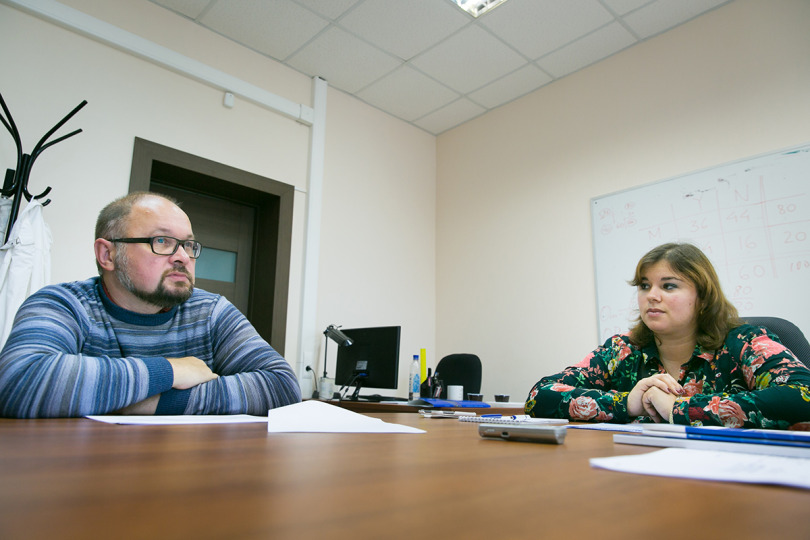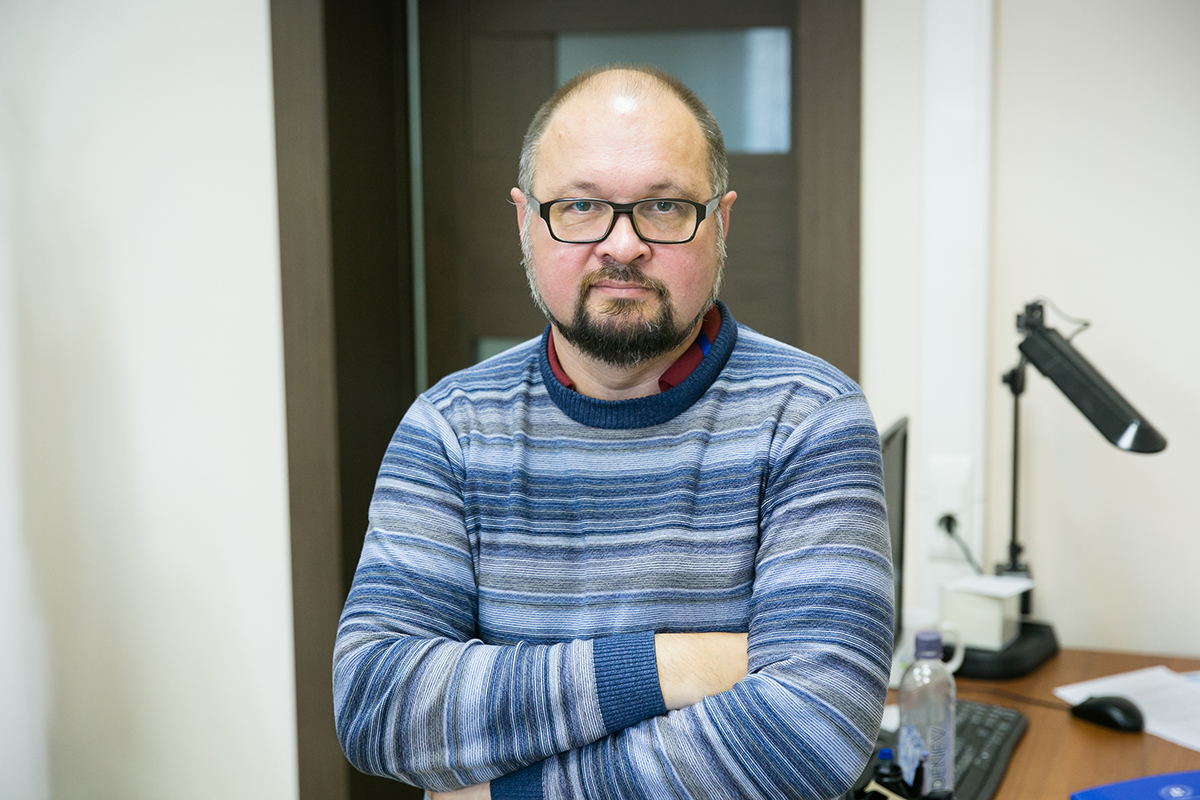International Not Only in Name

The International Laboratory for Comparative Social Research (LCSR) was established in 2010 in the first wave of a competition for government mega-grants to attract major academics from abroad to Russian universities. The famous American sociologist and political scientist Ronald Inglehart, Founding President of the World Values Survey and professor at the University of Michigan, became the laboratory’s first Academic Supervisor.
The laboratory chose an unusual form of international research cooperation. The annual international conference in November is just the tip of the iceberg. ‘We have organised a wide network of associated colleagues who work, not for money but for the sake of ideas.’ LCSR Director Eduard Ponarin explains. ‘They come here from all over the world to give us progress reports on their research and ask our advice. Then they publish under our affiliation.’ We invite applications from researchers three times a year. Currently we have almost 100 researchers and experts in the network from the USA, Europe and the CIS and 24 are on the staff at LCSR in Moscow and St Petersburg.
The presence of LCSR on both campuses came about for formal and bureaucratic reasons. ‘Some people were sceptical about how it would work’, says Eduard Ponarin, ‘but they were proved wrong.’ The distance hasn’t made a gap between Petersburg and Muscovite researchers — they use videoconferencing to come together in the laboratory’s seminars every week.
Staking all on the youth
The laboratory in St Petersburg has a largely young team (nearly everyone is under forty), and Moscow doesn’t have any colleagues over 35. ‘We put our stakes on the younger generation from the beginning for good reason,’ says Eduard Ponarin. ‘For us it isn’t just about having more international colleagues but about them knowing new methods of data analysis. Unfortunately, our sociologists who were brought up in the Soviet then Russian tradition find it hard to adapt to innovations. Younger people are more flexible and learn new methods more easily which in turn helps them to communicate and find a common language with western academics which is important for collaborative research and publications.’

Having a young team does lead to rather high mobility. Some staff at the laboratory who became international academics while they were still young often take the opportunity to develop their careers abroad. They go Princeton, Columbia, Michigan and other universities for their PhDs or walk straight into a job in Stockholm, for example. ‘But that’s normal and we should welcome it,’ says Eduard Ponarin. ‘I just hope that some of them will come back to the laboratory later on.’ Some, however do stay on and work for long, fruitful periods at LCSR and gradually rise up the ladder from internships to become research fellows.
Our research
LCSR specialises in comparative, inter-country research involving some value component. We use secondary analysis of data from surveys in the public domain. Several research groups have taken shape, working on corruption, gender issues, values systems, lifestyles and other topics.
LCSR’s research on Russian elites by Eduard Ponarin and Ronald Inglehart and their colleagues, for the Valdai Forum 2013, provoked a wide response. It was based on data from several surveys, conducted over 20 years. A key research project for the laboratory was on happiness based on data about the evolution of value systems in several different countries over the last 30 years.
Another noteworthy research project looks at changes in values in the Arab world. ‘We looked at data collected by the Arab Barometer to find out what people of different ages think about democracy and women’s equality,’ says Eduard Ponarin, ‘and we discovered something interesting. Firstly, these indicators don’t correlate although throughout the rest of the world they correlate quite strongly. Secondly, the older generation is more liberal on the issue of women’s equality than the young which is also not typical for the rest of the world.’ The researchers think this situation is a consequence of the Cold War. In Arab countries, conservative monarchies, formerly allied with the USA, have taken hold and their conservative ideology, no longer countered by Soviet opposition has spread across the region. The mass scale reappraisal of values has happened particularly among the younger generation.
How much is a life worth and what have the traffic police got to do with it?
‘Every year,’ says Tatyana Karabchuk, Deputy Director of the LCSR and Head of the Moscow section, ‘we run a big applied project. It all began when we collaborated with the Eurasian Development Bank’s Centre for Integration Studies to research pension mobility in the Eurasian economic union in 2013. Last year, with them and with the UNDP, we researched labour migration issues and developing human capital in Central Asia.’
At the moment Tatyana is working with colleagues at the laboratory on projects which evaluate the effectiveness of road safety programmes and damage caused by accidents. The research was commissioned by the Federal Authority for Road Traffic Safety [GIBDD in Russian]. The main purpose of the research is to develop a methodological cost appraisal for losses caused by death, trauma and invalidity as a result of road accidents. The research will be a survey of international practices and the former FSU and will develop a method to make evaluations.
From research to education
In 2014 LCSR opened an English language Master’s programme in Comparative Social Research. Like the laboratory, the master’s is inter-campus. The first semester is in Moscow and the second in St Petersburg. That is followed by a semester abroad or at a Russian research organisation. In the final semester students finish their dissertation at either campus.
The Fifth Conference
You can find out more about all aspects of the LCRS and go to presentations of research projects by the laboratory and its partners abroad at the annual international conference on Cultural and Economic Changes under a Cross-National Perspective in November. The conference is happening for the fifth time, but this year will be the first time the leaders of the World Values Survey are coming. Before the conference opens they will hold a session of the committee in Moscow which will determine details of the next wave of WVS research (which happens every five years).
On the 12th November, Harvard Professor and Johan Skytte laureate Pippa Norris will present an honorary lecture. The LCSR, with the Yegor Gaidar Foundation has organised a public lecture by Ronald Inglehart (also a winner of the Johan Skytte prize) at the Mansion on Volkhonskaya Street on 17th November.
‘The line up of lecturers makes this our strongest conference yet,’ says Tatyana Karabchuk. ‘For the first time we will be joined by a group of researchers from Arab countries. There are so many speakers that we have organised parallel working sections and we will have six special sessions as part of the conference.’
Registration to attend the conference closes on 30th October.
See also:
'We Wanted to Create an Opportunity for Intercampus Teams to Engage in Promising Studies'
HSE University has announced the winners of the Project Competition in Basic Science Research for Intercampus Departments. The competition, which the university is organising for the first time, will provide funding to 10 research teams working on five topics. Four of the winning projects will be implemented by new research departments formed as a result of the competition.
Research Reveals RNA's Role in Cancer Progression
An international group of scientists and medical specialists, including HSE researchers, examined the role played by microRNA (miRNA) and long non-coding RNAs on the progression of ovarian cancer. Having analysed more than a hundred tumour samples, they found that miRNA can prevent cell mutation while long non-coding RNAs have the opposite effect of enabling such mutations. These findings can help design new drugs which act by regulating miRNA concentrations. The study was published in the International Journal of Molecular Sciences.
‘We Managed to Bring Together Specialists in AI, Pure Mathematics, and Neurobiology’
In early September, the HSE University Faculty of Computer Science hosted the international conference Computer Methods of Cognitome Analysis. The event was organised by the International Laboratory of Algebraic Topology and Its Applications at the faculty.
Russian Researchers Propose New Approach to Studying Facial Emotion Recognition
Researchers of the HSE University and the Southern Federal University (SFedU) have tested a new method for studying the perception of facial emotional expressions. They suggest that asking subjects to recognise emotional expressions from dynamic video clips rather than static photographs can improve the accuracy of findings, eg in psychiatric and neurological studies. The paper is published in Applied Sciences.
Academics Started Working Even More During the Pandemic
Academics’ work week became even longer during the pandemic. This is true of researchers from different countries, independently of their gender and specialisation, an international research team with HSE University participation found. Their working time during the pandemic was 51 hours compared to the usual 40. The increased number of working hours per week seems to have become part of the new academic norm. The results of the study were published in the Plos One journal.
HSE Researchers Develop New Method for Analysing Genetic Admixture of Populations
Researchers of the HSE International Laboratory of Statistical and Computational Genomics together with their international colleagues have proposed a new statistical method for analysing population admixture that makes it possible to determine the time and number of migration waves more accurately. The history of Colombians and Mexicans (descendants of Native Americans, Spaniards and Africans) features two episodes of admixture that occurred about 350 and 200 years ago for Mexicans and 400 and 100 years ago for Colombians. The results were published in the Plos Genetics journal.
Scholars from Moscow and Vladivostok Join Efforts to Study Institutes and Preferences in Economic Behaviour
Applications from HSE departments for the ‘Mirror Laboratories’ open project competition are open until May 20. One of the ‘mirror laboratories’ successfully operating today was created as a result of a similar competition in 2020 by economists from HSE University and Far Eastern Federal University (FEFU) to study institutes and preferences in economic behaviour. Alexis Belianin, Head of the HSE International Laboratory for Experimental and Behavioural Economics, talked about how peers from Moscow and Vladivostok collaborate.
Stress Disorders More Prevalent among Doctors due to the Pandemic
Psychologists from HSE University have joined their peers from Ekaterinburg to look into the impact of the pandemic on the mental health of Russian doctors. They found that medical staff are suffering from stress, anxiety, and depression more often than before. The results of the study were published in International Journal of Environmental Research and Public Health.
International Laboratory of Landscape Ecology Opens at HSE University
The laboratory will be led by Robert Sandlersky, a specialist in energy and mass transfer and the study of other properties of landscapes via satellite imagery and Senior Research Fellow at the Severtsov Institute of Ecology and Evolution of the Russian Academy of Sciences. The HSE News Service spoke to Robert about the laboratory’s future activities.
New International Laboratory to Study Lighting Flashes and Volcanic Lightning
HSE University has launched a new International Laboratory for the Study and Assessment of Dangerous Geophysical Phenomena. Alexander Kostinskiy, Head of the Laboratory and Deputy Director of HSE MIEM, explains the laboratory’s future work, its important research and practical applications, and the role of international cooperation in the new laboratory.


